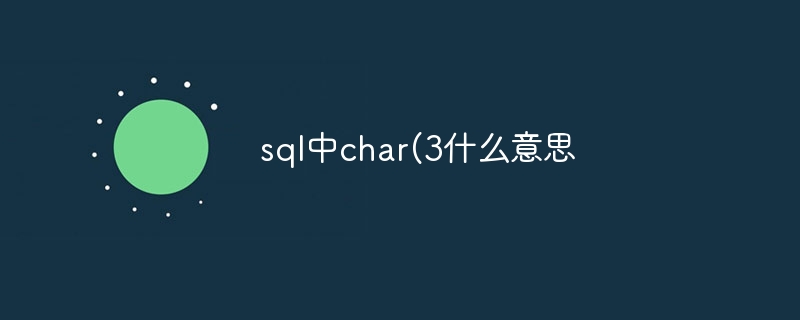What does char(3 mean in sql
- 下次还敢Original
- 2024-05-09 09:03:151335browse
CHAR(3) is a length modifier in SQL that creates a character data type with a fixed length. It always stores 3 characters. Use spaces to pad or truncate data beyond the length to improve performance but may not be efficient. lower.

CHAR(3) meaning in SQL
CHAR(3) is used to create characters in SQL The length modifier of the data type. It specifies the number of characters that the field can store, and always uses a fixed length.
Detailed description
- Fixed length: CHAR(3) creates fields that always have a fixed length of 3 characters, regardless of storage What is the actual data size of . This is unlike VARCHAR(3), which is variable-length and uses only as much storage as is required for the actual data size.
- Padding: If the data stored in a CHAR(3) field is less than 3 characters, the field will be padded to 3 characters with spaces.
- Truncation: If the data stored in a CHAR(3) field exceeds 3 characters, the field will be truncated to 3 characters.
- Storage space: CHAR(3) fields always occupy 3 characters of storage space, regardless of the size of the data stored.
- Performance: CHAR(3) fields perform better than VARCHAR(3) fields because they always have a fixed length, which allows the database to access and process data faster.
In short, CHAR(3) is a length modifier in SQL that specifies the length of a character data type. It creates a field with a fixed length that always stores 3 characters, regardless of the actual data size. This can improve performance, but may be less storage space efficient.
The above is the detailed content of What does char(3 mean in sql. For more information, please follow other related articles on the PHP Chinese website!

